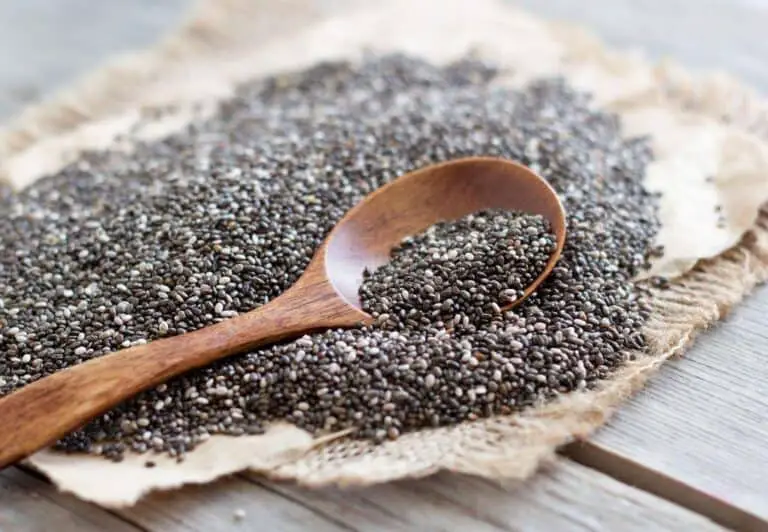Does Freezing Cookie Dough Make It Better and Change the Taste?

When you make cookies from scratch, you have to bake the dough right away. But what if you want to make a big batch of cookies and enjoy fresh-baked cookies throughout the week?
The answer is simple: freeze cookie dough! When you freeze cookie dough, you can have it ready to bake at a moment’s notice. Plus, homemade cookies always taste better than store-bought baked cookies.
In the world of cookies, there are two types of people: those who think freezing cookie dough makes it better, and those who don’t.
The debate has raged on for years, with both sides adamant that their method is the best. But what does science say?
There’s actually no definitive answer, as it depends on what kind of cookie you’re looking for. If you want a chewy cookie, then freezing the dough will likely make it tougher. If you’re after a crispier cookie, then freezing might be the way to go.
Ultimately, it’s up to you to decide which camp you’re in. But if you can’t make up your mind, maybe try both methods and see which one you like best!
So next time you’re in the mood for fresh-baked cookies, don’t forget to grab some dough from the freezer!
Does Freezing Cookie Dough Make It Better?

It’s true that freezing cookie dough improves its taste and texture. If you put your cookie in the fridge for a few hours, even for only 30 minutes, it will brown better, spread less, and develop a chewier texture. You’ll get taller cookies if the dough is at room temperature when you put it in the oven.
A chewier, less cakey cookie is the consequence of chilling the dough, much like with pie crust. For long-term preservation, dough can be portioned out into balls and frozen before baking. The great thing about frozen cookie dough balls is that you can bake them right out of the freezer.
The cookies will taste better if they are allowed to cool for even a short length of time.
Does Freezing Cookie Dough Change the Taste?
The answer to this question is not straightforward, as it depends on several factors, such as the type of cookie dough, the freezing method used, and the length of time it is stored in the freezer. However, generally speaking, freezing cookie dough should not affect its taste significantly.
When you freeze cookie dough, the cold temperature causes the moisture in the dough to crystallize. This process can lead to a slight change in the texture of the dough, making it a bit firmer. But once you bake freeze cookie dough, it should regain its original texture and taste.
One way to make sure that frozen cookie dough keeps its original flavor is to freeze it in airtight bags or containers. This method helps to prevent freezer burn, which can alter the flavor and texture of the dough. Additionally, it is recommended to freeze cookie dough for no longer than three months, as prolonged storage can result in a stale taste.
It is worth noting that certain types of cookie dough freeze better than others. For instance, chocolate chip cookie dough generally freezes well and retains its taste, while cookie dough containing nuts or dried fruits may not freeze as well due to the moisture content. In this case, it’s best to add these ingredients after thawing the dough.
What Types of Cookie Doughs Can and Can’t Be Freezed?
Almost all cookie doughs, with a few notable exceptions, can be effectively frozen. The type of cookie will determine how well the cookie dough freezes.
- Cookie doughs that are made with all butter or have a higher fat content generally freeze well. This includes chocolate chips, oatmeal, and cut-out cookies.
- Another type of cookie dough that can be frozen is sugar cookie dough. This type of dough is very versatile and can be used for a variety of different cookies.
- If a cookie dough is made with margarine or shortening, it may not freeze as well. Drop cookies generally do not freeze well. When freezing cookie dough, make sure it is in an airtight container so it doesn’t dry out.
- Cookies like florentine, lace, and tuile are thin and delicate. They are made with a liquidy batter that doesn’t freeze well, either before or after baking.
What Not to Do When Working with Frozen Cookie Dough
An entire batch of cookies might be too much at times. Everyone knows that they can save the extra dough by storing and freezing it for future consumption.
When working with frozen cookie dough, there are a few things you should avoid doing in order to keep the dough in good condition.
- Do not let the dough thaw for too long at room temperature. The dough will become too soft and difficult to work with if it gets too warm.
- Do not refreeze the dough once it has thawed. Once the dough has been frozen and thawed, it will not be as fresh and will not bake as well when baked.
- Finally, avoid using too much flour when rolling out the dough. Using too much flour will make the cookies tough and dry. Baking cookies.
So, by following the above guide, you will make sure your next batch of cookies tastes just as good as the first.
Do’s and Don’t of Frozen Cookie Dough
There are both do’s and don’t to consider before making the decision to freeze your cookie dough.
 |
- Do wrap the dough tightly. To prevent freezer burn and preserve the quality of the dough, it’s important to wrap it tightly in plastic wrap or aluminum foil before freezing. This will help to seal in the moisture and protect the dough from the drying effects of the freezer.
- Do portion the dough before freezing. If you’re freezing a large batch of cookie dough, it can be helpful to divide it into smaller portions before freezing. This will allow you to thaw and bake just as many cookies as you want at a given time, rather than having to bake a whole batch all at once.
- Do label and date the dough. When you freeze cookie dough, it’s a good idea to label it with the type of dough and the date it was frozen. This will help you keep track of what you have in the freezer and how long it’s been stored.
- Don’t freeze raw eggs. If your cookie dough recipe includes raw eggs, it’s generally not a good idea to freeze the dough. Raw eggs can develop bacteria that can cause food poisoning, and the freezing process may not kill these bacteria. If you want to freeze cookie dough that contains eggs, it’s best to use pasteurized eggs or a recipe that calls for cooked eggs.
- Don’t thaw and refreeze the dough. Once you’ve thawed cookie dough, it’s important to use it as soon as possible. If you don’t think you’ll be able to use it all within a few days, it’s best to bake the cookies and freeze them instead. Refreezing thawed cookie dough can lead to a loss of quality and texture.
- Don’t store the dough in the door of the freezer. The door of the freezer is the warmest part of the appliance, and it can cause the cookie dough to thaw and refreeze repeatedly, which can affect the quality of the dough. It’s best to store the dough in a more stable, central location in the freezer.
How Long Can You Freeze Cookie Dough?
Cookie dough is a versatile and delicious treat that can be enjoyed all year round. But how long can you freeze cookie dough before it goes bad?
Most cookie dough can be stored in the freezer for up to 3 months. This includes both store-bought and homemade cookie dough. If you’re not sure how long your cookie dough has been in the freezer, it’s best to err on the side of caution and throw it out.
When freezing cookie dough, there are a few things to keep in mind. First, make sure the dough is well-wrapped so it doesn’t dry out. Second, if you’re using a recipe that calls for eggs, they should be added after the dough has thawed.
So go ahead and stock up on cookie dough!
Defrosting and Assembling Cookie Dough
Cookie dough made with butter or shortening may be frozen. When it comes to cookie doughs that rely on whipped egg yolks for texture and volume, freezing them will be a challenge.
The fragile nature of meringues and macarons means that they cannot be frozen for long periods of time. You should cover the dough tightly before freezing to prevent freezer burn and odor absorption. For added safety, place the wrapped cookie dough in a freezer bag.
Shortbread-Like Cookies
Cakes like slice-and-bake or biscuits don’t need to be defrosted before baking. Once you’ve taken them out of the freezer, bake them immediately for a delightfully fresh cookie.
When baked straight from the freezer, cookie spreads are more consistent, resulting in superior results. Another time you make shortbread-style biscuits, consider freezing half of the batch.
Frozen cookie logs are easier to slice after they’ve defrosted for a few minutes. Place on a baking sheet with parchment paper and bake as directed in the recipe. Put the item on a baking sheet that has been lined, and bake as directed. If necessary, bake the cookies for a few extra minutes.
Things That You Don’t Want Frozen
Although some cookie doughs don’t freeze well, some do. Rather than using butter in the cookie dough, these recipes call for egg whites. Some dishes, like macarons and meringues, should never be frozen. Many of these cookie doughs must be baked first before they can be packaged and frozen.
Thawing
Refrigeration is the most important thing to remember while thawing cookie dough, whether shortbread or drop cookies. Keep the cookie dough refrigerated to prevent the growth of bacteria from the eggs while defrosting it at room temperature.
Defrosting frozen dough at room temperature before using it in a recipe is an alternate method. There should be a minute or so more baking time. Depending on how the cookies are divided, they will all have the same flavor. Keep an eye on the oven toward the end to ensure that you obtain the perfect golden biscuit.
Refrigerating cookie dough
Cookie dough may easily be frozen for later use. Using this approach, I believe, is the simplest and most effective approach.
Once the cookie dough has chilled in the refrigerator, use a rolling pin to shape it into balls (if the cookie recipe calls for cooling).
For an hour, chill the cookie dough balls.
The cookie dough may be stored in a large or small zip-top bag marked with your name if you have a large amount of it.
Baking at a temperature of 375 degrees Fahrenheit for an hour and a half.
For up to three months, cookie dough can be kept in the freezer. The date and temperature of the cookie dough will tell you when it’s fresh. You are free to write anything that will benefit you. The time, date, temperature, and name of the recipe are all included here for your convenience.
When it’s time to bake the cookies, remove them from the freezer. According to the recipe, the oven should indeed be preheated.
It is best to bake cookie dough that has just been frozen for a few more minutes.
FAQ
Which Cookie Dough is Best to Freeze?
Chocolate chip cookie dough and drop cookies like oatmeal and butter cookies freeze well
Do You Need to Thaw Frozen Dough Before Baking?
If you have frozen dough that you need to use for baking, you’ll need to thaw it before you can begin working with it.
What containers do you need to freeze cookies?
You will need a tupperware or plastic container to freeze cookie dough. Place the dough in the freezer bag, and seal it tightly. Then, place the bag in the freezer.
Conclusion
When it comes to freezing cookie dough, not all recipes are created equal. Some cookie doughs freeze beautifully and can be stored for months, while others just don’t seem to hold up in the freezer. So what’s the difference?
It all has to do with the type of ingredients used. Cookie doughs that contain a lot of fat (butter, shortening, or oil) tend to freeze well. This is because fat doesn’t harden when it’s cold, so the dough stays soft and scoopable even after being frozen.
On the other hand, cookie doughs that contain mostly water (like egg whites or milk) will not freeze well. These types of cookie dough are more likely to become crumbly and dry when frozen, so they’re not ideal for making ahead.






